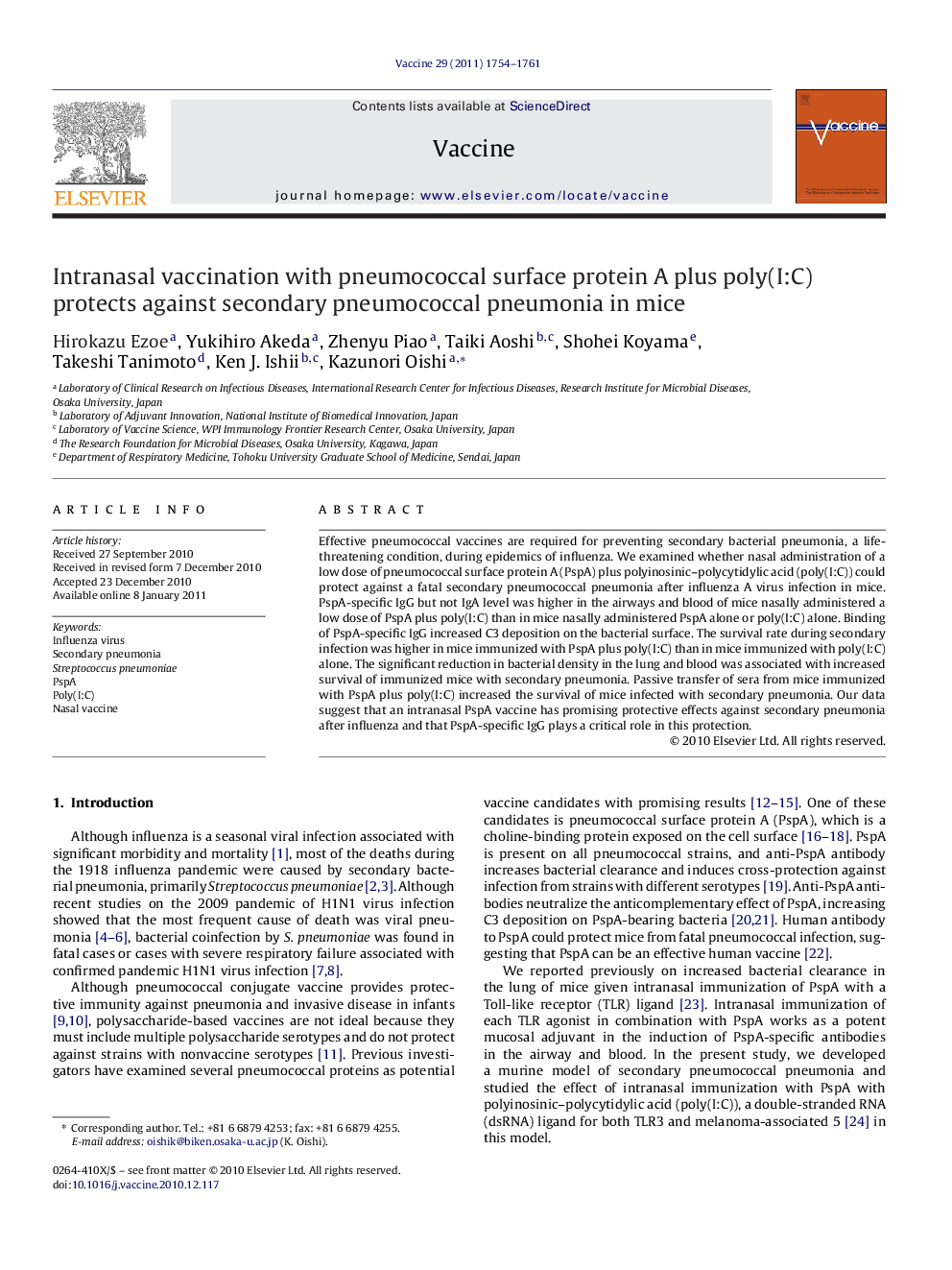| Article ID | Journal | Published Year | Pages | File Type |
|---|---|---|---|---|
| 2403525 | Vaccine | 2011 | 8 Pages |
Effective pneumococcal vaccines are required for preventing secondary bacterial pneumonia, a life-threatening condition, during epidemics of influenza. We examined whether nasal administration of a low dose of pneumococcal surface protein A (PspA) plus polyinosinic–polycytidylic acid (poly(I:C)) could protect against a fatal secondary pneumococcal pneumonia after influenza A virus infection in mice. PspA-specific IgG but not IgA level was higher in the airways and blood of mice nasally administered a low dose of PspA plus poly(I:C) than in mice nasally administered PspA alone or poly(I:C) alone. Binding of PspA-specific IgG increased C3 deposition on the bacterial surface. The survival rate during secondary infection was higher in mice immunized with PspA plus poly(I:C) than in mice immunized with poly(I:C) alone. The significant reduction in bacterial density in the lung and blood was associated with increased survival of immunized mice with secondary pneumonia. Passive transfer of sera from mice immunized with PspA plus poly(I:C) increased the survival of mice infected with secondary pneumonia. Our data suggest that an intranasal PspA vaccine has promising protective effects against secondary pneumonia after influenza and that PspA-specific IgG plays a critical role in this protection.
